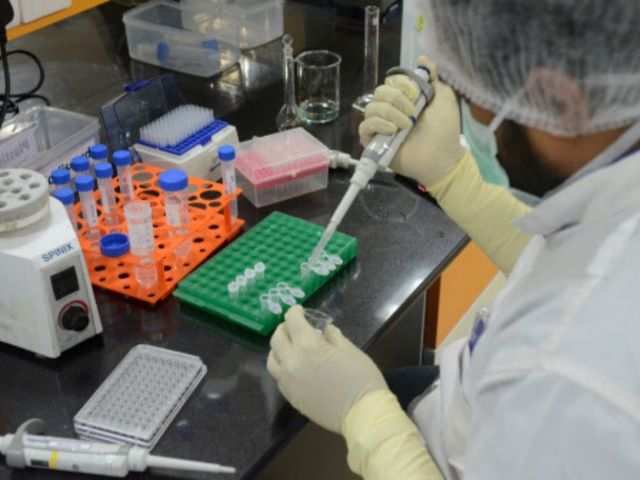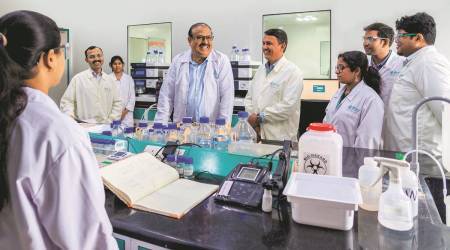The Hyderabad-based Bharat Biotech is under radar to misreported the clinical trails data to the concern authorities. #KhabarLive delves to know the facts on this episode.
It calls into doubt the efficacy of Covaxin during studies on human antibody development to combat the Coronavirus.
Covaxin, the anti-Covid vaccine developed by Bharat Biotech, has been tested, but extremely major procedural lapses and inaccurate reporting of the results have come to light, raising some very uneasy issues about the vaccine’s rollout for widespread usage in India.

Investigations into the three stages of Covaxin’s human trials have uncovered serious reporting errors, some of which appear to be deliberate. This raises serious concerns about the possibility that trial data may have been manipulated to achieve a specific outcome that would have expedited the vaccine’s approval for use in the general public.
Phase 1 studies, for instance, started on July 20, 2020. In a piece that appeared in The Lancet’s online edition on January 21, 2021, researchers from Bharat Biotech asserted that “two intramuscular doses of vaccinations were administered on day 0 (the day of randomization) and day 14.”
Nothing could have been more false, at least in regards to a few testing locations in India. None of the phase 1 trial participants at these locations received the “intramuscular doses of vaccines” that the authors of the article, “Safety and immunogenicity of an inactivated SARS-CoV-2 vaccine, BBV152: a double-blind, randomised, phase 1 trial,” claimed had been administered.
Among these authors were the Bharat Biotech founders and the leaders of the Indian Council for Medical Research and the All-India Institute of Medical Sciences, in New Delhi.
Despite the company’s claims in published research that the intramuscular route was used, what actually occurred at the trial sites was that the participating doctors, understandably concerned about the potential side-effects of an untested vaccine, administered doses via intravenous (IV) lines instead of the intramuscular route.
“We had to be really cautious. What if someone experienced a crash following the vaccination? After all, it was undergoing its initial testing. We chose standard IV lines to administer the vaccine during Phase 1 because setting up an IV line to revive a trial participant if they crash would be very difficult, according to a source involved in the trials.
There are other ways to administer vaccines, including intramuscularly, as Covaxin was intended to do, intradermally (between two layers of skin), or intravenously.

The ‘exposure’ of a vaccination to human cells, where absorption occurs, varies depending on the location of administration, according to medical specialists. Therefore, depending on the method of administration, the outcomes of the vaccine’s performance (the body’s reactions to the vaccine) can vary greatly. This raised concerns about the results or interpretations of a human trial, in this case of Covaxin.
In some cases where Covaxin was administered intravenously, the trial site staff did admit that some participants were upset at not having been told that it would be an IV injection. They were told about the possible need for an existing IV route in case of a crash or a heart attack.
“The fact is that any outcome drawn from the results of such strayed practices cannot be valid. Once a route of vaccine administration is determined by the manufacturer, and is approved by the regulator, there cannot be any deviation,” a top medical expert explained.
Govt, Bharat Biotech Deny ‘Shortcut’ in Covaxin Trials: What’s the Controversy?
COVAXIN has been pulled up by health experts in the past for a lack of transparency in clinical trial data.
‘Misleading and fallacious’ – said Union Health Ministry on 17 November, in response to an investigative report, which said that approval for Covaxin was rushed due to “political pressure.”
It all started with an investigative report by STAT that claimed the company rushed the clinical trials of Covaxin, and cut corners under political pressure to ‘create a home-grown product that could fulfil the national demand for COVID vaccines’.
The report also says that the health authorities in India backed and endorsed the vaccine, despite glaring discrepancies in it’s clinical trial data.
To find out more about what’s happening, read on.
The allegations: Here’s a quick run through of the STAT report. It said that Bharat Biotech:
Omitted data of some participants in the phase 1 trial when the study was published in a medical journal.
Changed protocol of the phase 2 trial testing without any scientific justification.
The Phase 3 trial was given the go-ahead before phase 2 was completed, and the data was collected.
It faced ‘political pressure’ to release the vaccines as quickly as possible, but that, according to a company insider, they ‘didn’t take any shortcuts’.
How do they know all this?
The report says they had access to internal documents from the company, and they also quote people in the company, including Krishna Mohan, one of Bharat Biotech’s directors.
The report also cites protocol documents, and minutes of meetings held by the Central Drugs Standard Control Organization’s (CDSCO) Subject Expert Committee that approved these vaccines.
What is Bharat Biotech saying?
In a statement released on 17 November, the company denied ‘external pressure’, and called the media reports ‘incorrect and erroneous’.
However, they also accepted that the phase 3 trial was not conducted based on phase 2 trial data, rather data from phase 1 and animal studies.
The statement doesn’t refute other allegations made in the STAT report either – including the claim that changes were made to the clinical trial protocol without justification.
In the news report, Mohan is quoted accepting the claim. He says that ‘unusual’ steps they had to take to rise up to the unusual situation – the pandemic, but assured that there was no issue with the veracity of the data.
What the government is saying: On 17 November, the Ministry of Health and Family Welfare also released a statement calling the report “completely misleading, fallacious and ill-informed,” and denies any irregularities.
The CDSCO followed a scientific approach in granting an EUA to COVAXIN.
The changes to COVAXIN’s clinical trials protocol pointed out in the report were made in compliance of due process in CDSCO and with approval from the DGCI.
‘A History of Lack of Transparency’
Experts have in the past expressed their concerns regarding the emergency use authorisation (EUA) granted to COVAXIN in January 2021 – two months before the phase 3 clinical trial data was in.
In their statement MoHFW assures that the data was examined by the SEC of the CDSCO before the EUA was granted, but this data was never made public.
In fact, even as the company declared efficacy data, experts have time and time again questioned why the phase 1/2, and phase 3 clinical trial data were not available to the public, or for peer review.
Speaking to #KhabarLive in early 2021, epidemiologist Dr Chandrakant Lahariya said, “it is possible that government is looking at that data and using it. But I cannot comment whether the government, experts and government committees have analysed that data or not, as it’s not available in public.”
This disturbing finding raises serious questions on how Bharat Biotech went about presenting its findings to the world, and to India’s drug regulators, on the results of its clinical trials. It also raises questions on just how effective Covaxin was during the trials on developing antibodies in humans to help fight the Coronavirus causing Covid-19.
The route of administration is based typically on hypotheses on how the vaccine creates an environment for the drug to act based on pharmacokinetics – the science of how the body interacts with the substances administered for the duration of exposure.
The doctor said, “The administration route cannot be changed, and if it is, the consequences may be substantially different. Before a product is made available to the general public, the maker must demonstrate that it functions both ways in separate clinical trials if variations occur. #KhabarLive #hydnews #hydlive







